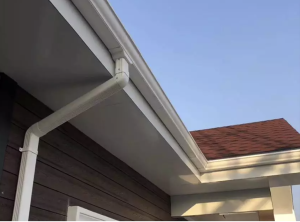Aluminum Tube vs. Pipe: What’s the Difference?

You may hear people use the terms “aluminum tube” and “aluminum pipe” interchangeably. However, they are not the same. Both consist of hollow aluminum cylinders, but they differ in size, shape, and purpose.
These differences matter based on your intended use. Let’s clarify what sets aluminum tubes apart from aluminum pipes.
Read more: Aluminum tubes comparison complete guide
What Is Aluminum Tubing?
Aluminum tubing consists of a hollow cylinder made from pure aluminum or aluminum alloy. Manufacturers produce it through processes like extrusion and drawing, which form a seamless tube along its length. This tubing comes in various cross-sectional shapes, including round, square, rectangular, or patterned.
Many industries use aluminum tubing in structural applications where precise outer diameter (OD) measurements matter. The size of the tubing depends on its OD and wall thickness (WT).
Its lightweight and durable properties make aluminum tubing ideal for railings, handrails, and other construction materials. It’s a popular choice for many projects due to its versatility and strength.

What Is Aluminum Piping?
Aluminum piping consists of hollow cylinders used to transport gases and fluids. These pipes are defined by Nominal Pipe Size (NPS), which measures the inside diameter, and Schedule, which indicates wall thickness. These standards come from the American National Standards Institute (ANSI).
In essence, a pipe is a round, hollow tube designed to carry substances like water, gas, steam, or oil. Unlike tubing, aluminum pipes maintain a round shape and focus on flow capacity rather than structural precision.
Aluminum Pipe vs. Aluminum Tube: Comparison Chart
This chart clearly shows the main differences between aluminum pipes and tubes. Use it to determine which option fits your project best.
| Feature | Aluminum Pipe | Aluminum Tube |
|---|---|---|
| Shape | Always round. | Can be round, square, rectangular, or oval. |
| Dimensions | Measured by Nominal Pipe Size (NPS), which approximates the inner diameter (ID). Common sizes include DN15, DN20, DN25, and more. | Measured by Outside Diameter (OD) and Wall Thickness (WT). Common ODs include 6 mm, 8 mm, 10 mm, and 12 mm. |
| Wall Thickness | Expressed using schedules such as Sch. 40, Sch. STD., or Sch. XS. | Typically ranges from 0.8 mm to 40 mm, depending on size and shape. Square tubes often have wall thicknesses around 20–130 mm in external diameter. |
Aluminum Piping Applications

Aluminum piping is used in many fluid transport systems. It commonly carries oil, natural gas, water, and other liquids or gases.
In chemical plants and energy sectors, aluminum piping is essential for safe material transport. It reduces the risk of leaks and explosions caused by toxic gases or high-pressure energy transfer. Its lightweight and durable properties make it a reliable choice for these critical applications.
Applications of Aluminum Tubes
Aluminum tubes are versatile and widely used in various applications due to their different shapes, including rectangular and square.
In construction, aluminum tubes are used for scaffolding, curtain rods, and structural supports. Their strength and lightweight nature make them ideal for these purposes.
In the automotive industry, aluminum tubes serve as materials for components like battery casings and fuel tanks. Their durability and resistance to corrosion are essential in vehicle manufacturing.
In electronics, aluminum tubes are used as housings for motors, heat sinks, and computer mainframes. They effectively dissipate heat, making them suitable for these applications.
Overall, aluminum tubes find use in construction, automotive, and electronics, proving their value across multiple industries.
How Are Tubes and Pipes Manufactured?
Aluminum tubes and pipes are made through a process called aluminum extrusion. This method shapes aluminum into hollow profiles, commonly known as “extruded aluminum tubes.”
What Is Aluminum Extrusion?
Aluminum extrusion involves heating an aluminum billet and pushing it through a die. The die defines the final shape of the tube or pipe. This process produces high-quality products at low manufacturing costs.
Check more: Extruded aluminum profiles products
Steps in the Aluminum Extrusion Process
- Raw Material Preparation: Choose the right aluminum alloy for the application.
- Preheating: Heat the aluminum billet to make it easier to shape.
- Extrusion: Push the heated billet through a die using a hydraulic press to create the desired shape.
- Heat Treatment: Apply aging treatments to improve strength and durability.
- Surface Finishing: Use anodizing or powder coating to enhance surface quality and protection.
This process ensures that aluminum tubes and pipes are precise and consistent, making them suitable for various applications.
Aluminum Tube Is More Popular
People highly value aluminum tubes for their versatility and wide range of applications. Their various shapes, including square, rectangular, and oval, make them suitable for many uses.
In the outdoor industry, manufacturers use aluminum square tubes for tent supports and table legs. These tubes provide strength while remaining lightweight. In the medical field, manufacturers use aluminum oval tubes for crutches and wheelchairs, offering durability without excess weight. Additionally, electronics companies utilize aluminum torque tubes as housings for motors and heat sinks.
Aluminum tubes have replaced many traditional materials due to their practicality and design flexibility. While they share similarities with pipes, their distinct shapes and functions make them a preferred choice in various industries.






